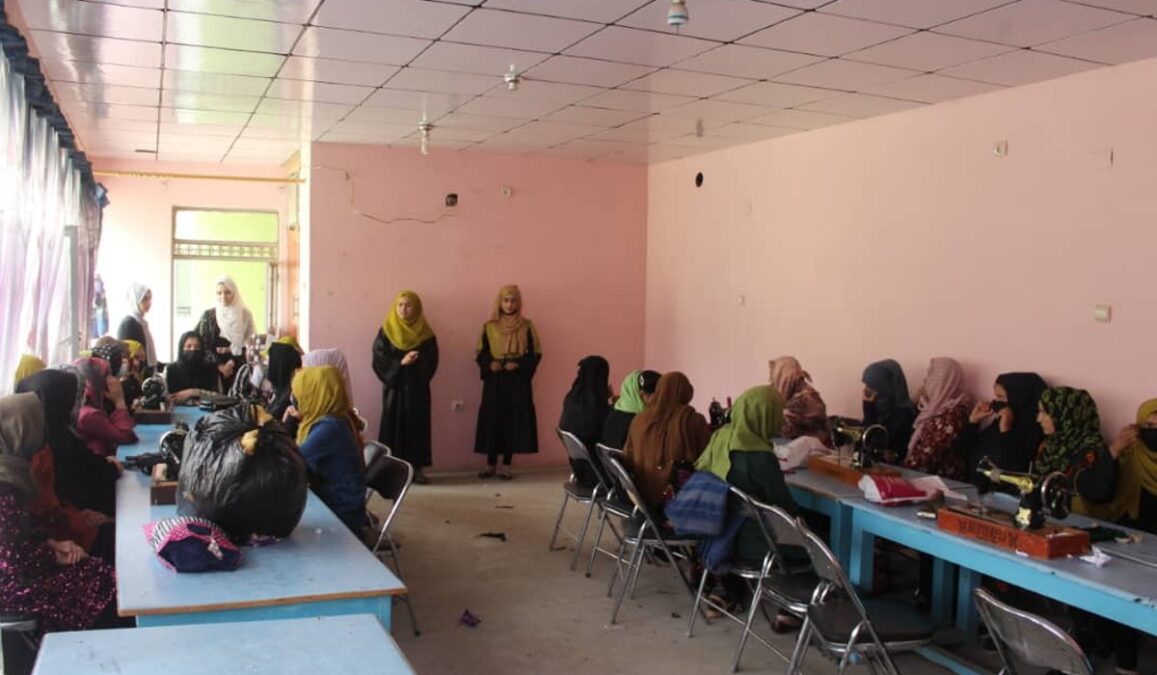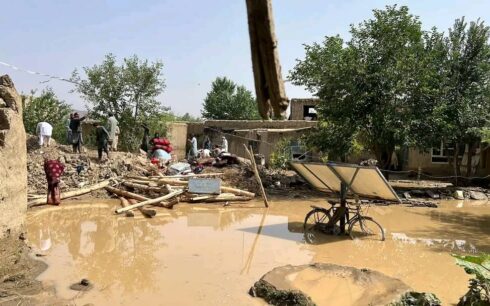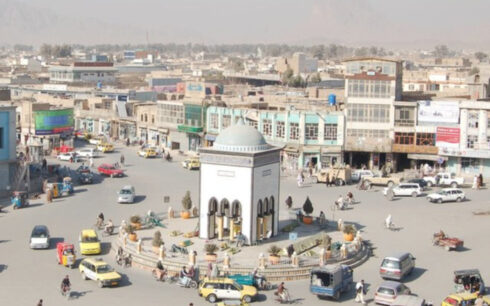Women in Badakhshan said their situation is not much different compared to women in other provinces of the country, who are also facing many restrictions in their presence in society.
Women in Badakhshan said they are not allowed walk out of their homes without a companion and have to cover their faces.
“After the Taliban takeover, we no longer have the right to choose in our lives. When we go out, people from the Taliban block our way and say ugly things to us if we don’t cover our faces and don’t have a companion. They even beat up women sometimes,” said Muzhda, a resident of Badakhshan.
“We don’t feel free anywhere from the vice and virtue authorities of Taliban. They harass us on the streets, markets, training centers, school and university,” she added.
Secondary schools in Badakhshan have been closed for girls over the past 14 months, like other provinces. Girls deprived of schooling said they are “disappointed” about their future.
“I was in the 10th grade. I used to go to school with many hopes and dreams, but after the Taliban took power, our schools have been closed for more than a year, I have no hope that they will let us go to school,” said Hamida, a schoolgirl from Badakhshan.
“I don’t know the reason for which schools have been closed, but do know that the Taliban is afraid of girls’ education,” said Hamida.
Badakhshan women said they have not stopped their struggle to work in different sectors despite increasing restrictions by the Taliban.
But they added that there is a significant decrease in cultural and social activities and events they used to organize under the previous government.
“Before the Taliban takeover, we used to launch cultural and social programs in the city of Faizabad and other Badakhshan districts, but now, our activities have reduced and we continue our work cautiously,” said Mahbubah, an activist in Badakhshan.
The role of women in Badakhshan media has decreased significantly over the last year.
Based on the statistics of the Badakhshan Journalists Association, the number of journalists and media workers has reduced to at least 60 from 180 people, including 76 women, a year ago.
Ahead of the fall of the republic government, three TV networks, 10 radio stations, including Radio Amu, Radio Pamir, Radio Derakhshan, Radio Banuwan, Radio Harim Zan, Radio Sada-e-Khorasan, Radio Baharestan and Radio Kishm, and five print media were active in Badakhshan.
Two radio stations that were led by women have been closed, and the broadcasts of Harim-e-Zan Radio are also carried forward by men.





